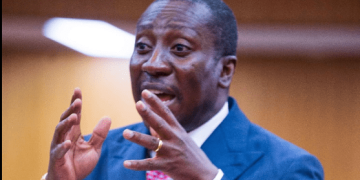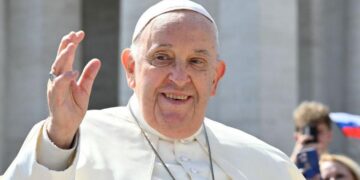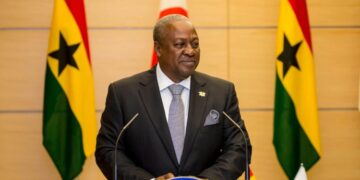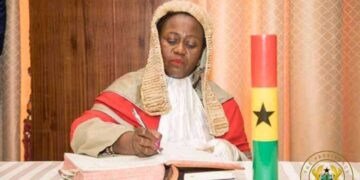Ghana has had its political tortious journey since 1992 after the nation was governed by a Military regime headed by the late Flt Lt Jerry John Rawlings for eleven years.
He ascended the throne as the Head of state when some military officers joined him to truncate the life of the third Republic headed by Dr Hilla Liman. This occurred in 1981.
Limman’s Government was described as weak, ineffective and corrupt.
That government also has its budget thrown away by the then Parliament.
Then Rawlings established a military government called the Provisional National Defense Council ( PNDC).
Rawlings was smart, he didn’t allow only the soldiers to rule. He then quickly brought in some civilians from the known political traditions the Nkrumahist and the Danquah Busia and Dombo stock to be part of his military. That gave it a quasi-legitimacy.
He stayed in power for eleven years.
Through the agitations of the citizens, a new Constitution was drafted and approved by the population through a referendum.
The new Constitution is the current 1992 Constitution which has so far stood the test of time.
It only suffered one amendment in its thirty years of existence.
Rawlings had to quit as a military officer to contest the presidential election on the ticket of his newly formed political party called the National Democratic Congress. The Constitution of our country does not allow officers in the uniform to stand for any public election.
Traditional authorities too unless they abdicated their stool or skin.
By then other political parties were also in existence as the Constitution approved by the Ghanaians allowed the fruition and the formation. But the formidable political parties contested in the maiden election in the fourth Republic included the New Patriotic Party with Professor Albert Adu Boahene as its flag bearer. He was a university don at the premier university, the University of Ghana.
Before the election as the leader of NPP which later became the main opposition party, he was an outspoken chap who criticized the PNDC Government without fear or favour. He was applauded as a democratic icon in the formation of the Fourth Republic.
Dr Hilla Limman, the President of the Third Republic made a comeback to contest on the ticket of the People’s National Party.
National Independent Party, National Convention Party, and People’s Heritage Party all participated in the election.
At the end of the contest, Rawlings and his party, the National Democratic Congress with the aid of the National Convention Party, won the election.
The NDC entered into a political alliance with the NCP. The leader of the NCP was made the running mate and later the Vice-President of the country, Kow Nkenson Arkaah.
In the maiden election, the Parliamentary elections were held later after the Presidential elections.
The main opposition party, the New Patriotic Party boycotted the election citing irregularities in the Presidential elections.
So the Parliament was one-sided as it was only NDC and its alliance or partners dominated the House.
The first Speaker of the House was Rt Hon Justice Daniel Francis Annan. He was also a member of the defunct PNDC Military Government.
During the reign of the Government, there was a visible misunderstanding between the President and his Vice. The President was alleged to have beaten his Vice President at a cabinet meeting.
It was the political news of the time.
The government successfully ended its term.
In the year 1996, elections were held again to usher the country either to elect a government or retain the government already in power.
The key antagonists were the National Democratic Congress and the New Patriotic Party.
The NDC retained Jerry John Rawlings as its flag bearer but the NPP brought in JA Kufour as its flag bearer. The NPP this time entered into a political alliance with a new political party called the People’s Congress Party led by the former Vice President who was allegedly beaten by the President.He was Kow Nkenson Arkaah.( Political gymnastics).
He was made a running mate once again to JA Kufour.
After the elections, Rawlings was once again retained as the President but NPP and its alliance increased their percentage.
NPP won about 66 seats in Parliament. The side was led by the venerable Joseph Henry Mensah as the Minority leader and NDC had Hon Owusu Acheampong as the Majority leader, he later became the Minister of Food and Agriculture.His place was taken by Hon Dr Kwabena Adjei. The three are all deceased.
That Parliament was described as the best Parliament in the Fourth Republic.
Some of the notable members of the House were the former President, Nana Akufo Addo, Yaw Osafo Maafo, Papa Owusu Ankomah, Kwamena Bartels, Gladys Asmah, SK Boafo, IC Quaye on the part of the NPP.
NDC had Hon Doe Adjaho, a former Speaker of the House, Alban Sumana Kingsford Bagbin, the current Speaker, Madam Comfort Owusu, Hon. Aseidu Nketiah, the current National Chairman of the National Democratic Congress, who was later appointed as a Deputy Minister of Food and Agriculture…
End of Part 1
Ahmed
The Servant




















































































